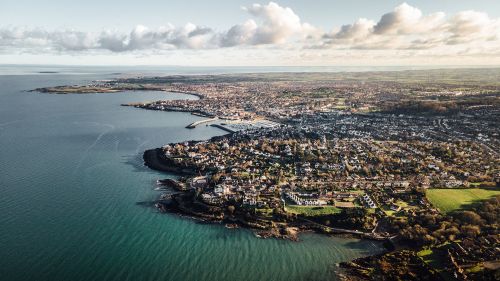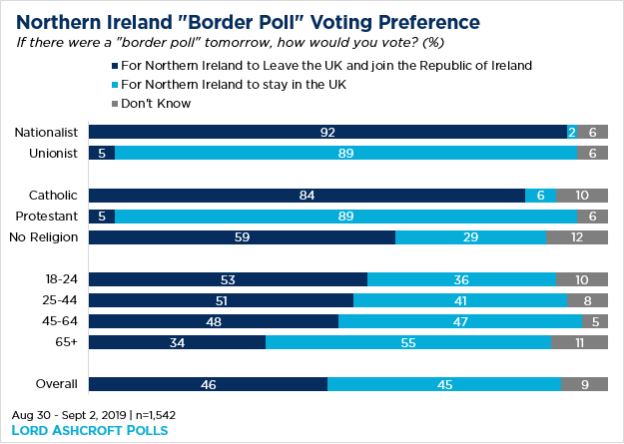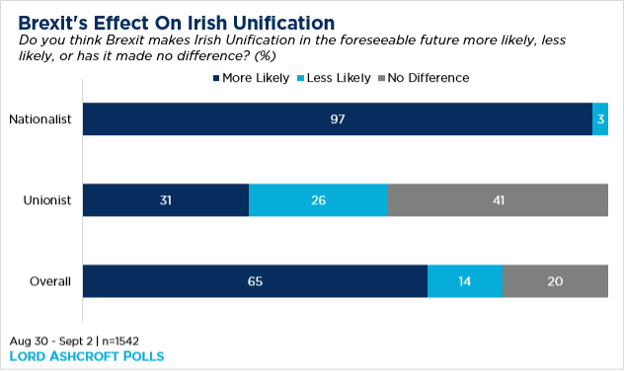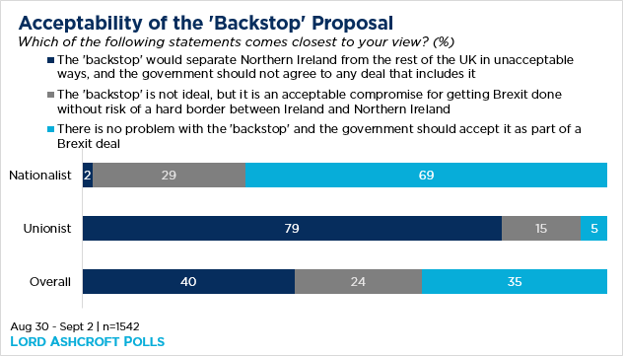Northern Ireland Remains Staunchly Divided Over Its Future

The ramifications of Brexit are unfolding in Northern Ireland. As a result, historical, political, and religious divides are increasingly felt in debates over the future of the country's border.
As Brexit negotiations continue to heat up in advance of the October 31st deadline, one of the UK government’s top priorities is determining how to handle the only land boundary with the European Union -- the border between Northern Ireland and the Republic of Ireland. Prior attempts to resolve the predicted border issue with a so-called “backstop”—a proposal that would avoid new infrastructure and inspections at the border—have been repeatedly struck down in Parliament, and the issue has constituted a key roadblock to a Brexit deal. Despite support for the measure from the European Union, the Irish government, and nationalist Northern Irish political parties, Prime Minister Boris Johnson has signaled his intention to remove the backstop from potential negotiations for a deal. Without the backstop or other “alternative arrangements,” a hard border between Northern Ireland and the Republic of Ireland would be instituted, effectively violating the spirit of the 1998 Good Friday Agreement, and potentially reawakening conflicts that have been slumbering since the end of the Troubles.
A recent survey of Northern Irish voters conducted by Lord Ashcroft Polls revealed a schism between unionists and nationalists, as well as lingering religious divisions. When asked whether they would vote for Northern Ireland to leave the UK and join the Republic of Ireland (and thus remain in the EU), or to remain in the UK, 46 percent of Northern Ireland voters say they would vote to leave, while 45 percent would vote to stay. The evenly-divided votes were split almost directly down ideological lines—92 percent of nationalists reported a preference to leave the UK and join the Republic of Ireland, while 89 percent of unionists reported a preference to stay in the United Kingdom. As might be expected, these numbers are linked to the religious demographics of Northern Ireland. Historically, most Catholics (84%) consider themselves nationalist and would thus vote to leave, whereas most Protestants (89%) consider themselves unionists and would thus vote to stay.
The poll also illuminated the difference in opinion across age groups in Northern Ireland. A slight majority of voters aged 18-24 (53%) and 25-44 (51%) would vote to leave the UK and join the Republic of Ireland, whereas a majority of citizens aged 65+ (55%) would vote to stay in the UK. The findings thus suggest that unionism isn’t as strongly felt among younger populations, perhaps due to pro-EU inclinations.

When asked whether Brexit makes Irish unification in the foreseeable future more likely or less likely, nearly two-thirds (65%) of the general population responded more likely, though results were similarly split along ideological lines. Whereas 97 percent of nationalists see unification as a likely outcome, a plurality (41%) of unionists feel Brexit will make no difference.

Regarding the proposed backstop, the overall public is not in consensus. Though 40 percent of Northern Irish voters believe that the backstop would be unacceptable and should be removed from the negotiation table, 35 percent of citizens see no issue with it and 24 percent see the backstop as an acceptable compromise. In particular, a majority of nationalists (69%) see no problem with the backstop, while a majority of unionists (79%) say it is unacceptable.

Despite more than 20 years having passed since the end of the Troubles, it’s clear that deep divisions remain among the Northern Irish public as the border issue, if not resolved, has the potential to reignite old flashpoints. Extreme polarization in opinion regarding Northern Ireland’s future has been exacerbated by ongoing uncertainty over how and when the United Kingdom will manage to leave the EU, and what that may mean for the unity of the kingdom and Northern Ireland’s fragile peace within it.

